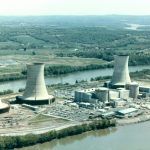The Six-Party Talks: Outlining a true restart
By John W. Lewis, Robert Carlin | March 17, 2010
In recent weeks, several senior diplomats from several different countries have indicated that the Six-Party Talks aimed at dismantling North Korea’s nuclear weapons program will resume shortly. That’s the good news. The bad news is that these long-awaited talks will come up short–yet again–unless they undergo a serious reality check.
Originally created to deal with an earlier nuclear crisis in 2002, the multi-party negotiations were intended to replace, and improve upon, the 1994 U.S.-North Korean Agreed Framework, which froze Pyongyang’s fissile production program in an attempt to prevent the North from getting nuclear weapons. Unfortunately, whatever promise these talks first held vanished in October 2006 when North Korea decided to attempt a nuclear test. And any remaining shreds of promise disappeared completely last May with Pyongyang’s second nuclear test.
So the North Korea we are dealing with today (i.e., a de facto nuclear weapon state) is much different than the North Korea we were dealing with in 2002 (i.e., a country whose nuclear status was ambiguous). Making matters worse, we have painted ourselves into a corner by vowing that we will never “accept” Pyongyang as a nuclear-armed state.
Escaping from this corner will require a delicate, but not impossible, diplomatic dance. We don’t have to give up our ultimate goal of denuclearizing North Korea and bringing it within the confines of the Nuclear Non-Proliferation Treaty. But we do have to free ourselves from out-of-date thinking so we can actually tackle this challenge instead of merely posturing about it.
Without a doubt, in 2010, the diplomatic dance is far more difficult than it was before October 2006. The dilemma is that Pyongyang has likely concluded that Washington can neither wrest away its nuclear weapons status nor build enough international pressure to convince it to do so. Most critically, North Korea’s two nuclear tests appear to have transformed the country’s self-image and bargaining strategy. Pyongyang sees no reason to heed the call for negotiations explicitly designed to relieve the regime of what it worked so long and hard to achieve.
Put another way, the last eight years of talks may have convinced Pyongyang that Washington will never be able to force the North into giving up its tiny, but politically crucial, nuclear stockpile. This may also signal that the space for negotiations has narrowed, and that there is less room to find the golden midpoint: Giving Pyongyang enough of what it wants (i.e., prestige, security, respect, and/or material rewards) so that it will surrender its nuclear weapons.
Things never should have gotten so bad, but numerous failed policies since 2002 have produced consequences that cannot be erased by U.S. presidential cycles. In other words, simply because a new president is sworn into office doesn’t mean the other players will blindly accept an offer to turn back the clock or indulge U.S. attempts to press the “reset” button.
So what do we do now? For starters, Washington needs to accept the reality that North Korea is a country with nuclear weapons; that there is–in the short term at least–little we can do about it; and that continuing to focus on denuclearizing Pyongyang gains us nothing. In fact, the only way to advance U.S. interests on the nuclear issue with North Korea is to admit that the ground has shifted. We don’t have to shout it from the rooftops, but getting the North to abandon its nuclear weapons program cannot remain our overriding objective, as crucial as that might seem. Rather, it’s time we refocused our work, keeping the nuclear problem on the agenda but not letting it completely dominate our approach.
To move forward constructively, we should first resume efforts by several U.S. administrations–from Reagan to Bush to Clinton–to prod the North into becoming a state more fully integrated into the global community. That will take years of hard work, conducted simultaneously on several fronts, but we had better get on with it. Next, we need to sit down and talk with the North Koreans to better refine our assumptions about what will work and what won’t work.
Waiting around for significant political change in Pyongyang to solve our problems is the longest of long shots. North Korea as we know it isn’t going to disappear any time soon, and the problems that flow from its anomalous policies won’t lessen if Washington keeps banging its collective head against the same old wall.
Together, we make the world safer.
The Bulletin elevates expert voices above the noise. But as an independent nonprofit organization, our operations depend on the support of readers like you. Help us continue to deliver quality journalism that holds leaders accountable. Your support of our work at any level is important. In return, we promise our coverage will be understandable, influential, vigilant, solution-oriented, and fair-minded. Together we can make a difference.
Topics: Nuclear Weapons, Opinion















